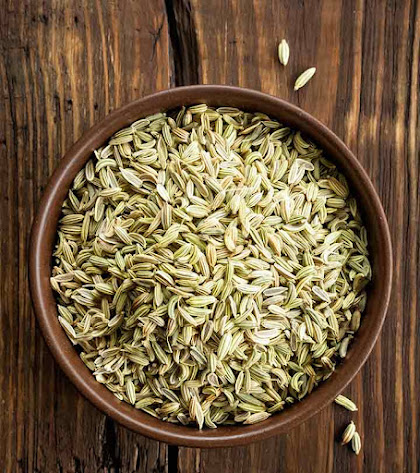Fennel (Foeniculum vulgare) is a versatile and aromatic plant that has been cultivated and used in various culinary and medicinal applications for centuries. With a unique flavor profile that combines the freshness of celery, the sweetness of anise, and a hint of licorice, fennel is a popular ingredient in many cuisines around the world. In this article, we will explore the characteristics, culinary uses, and potential health benefits of fennel.
 |
| Fennel (Image: Internet) |
Characteristics of Fennel:
Fennel is known for its distinct features:
Appearance: The fennel plant is easily recognizable by its feathery green leaves and bright yellow flowers. It can grow up to several feet in height.
Flavor: The entire fennel plant is edible, but it's the bulb, seeds, and fronds that are commonly used in cooking. The bulb has a crisp texture and a sweet, mildly licorice-like flavor. Fennel seeds have a stronger, more concentrated flavor and are often used as a spice.
Culinary Uses:
Fennel is a versatile ingredient in the kitchen and can be used in various ways:
Raw Consumption: Fennel bulbs are often eaten raw in salads, providing a refreshing crunch and a subtle anise flavor. They can be sliced thin or shaved for salads.
Cooked Dishes: Fennel can be roasted, grilled, or sautéed to enhance its sweetness and bring out a caramelized flavor. It pairs well with fish, poultry, and other vegetables.
Soups and Stews: Fennel can add depth to soups, broths, and stews. Its aromatic quality complements the flavors of many dishes.
Spice: Fennel seeds are used as a spice in various cuisines. They are often found in spice blends like Chinese five-spice powder, Indian spice mixtures, and Italian sausages.
Baking: Fennel seeds can be incorporated into bread, pastries, and desserts to add a distinctive flavor.
Health Benefits:
Fennel offers several potential health benefits:
Digestive Aid: Fennel has been used historically to relieve digestive issues such as bloating, gas, and indigestion. It may help relax the digestive tract and alleviate discomfort.
Antioxidant Properties: Fennel contains compounds like flavonoids and polyphenols that possess antioxidant properties, helping to protect the body's cells from oxidative damage.
Nutrient-Rich: Fennel is a good source of fiber, vitamins (like vitamin C), and minerals (such as potassium), contributing to overall health and well-being.
Breath Freshener: Chewing fennel seeds after meals is a traditional practice in many cultures to freshen the breath.
Weight Management: The fiber content in fennel can promote a feeling of fullness, potentially aiding in weight management by reducing overeating.
Menstrual and Menopausal Relief: Some women use fennel to alleviate menstrual symptoms and menopausal discomfort.
In conclusion, fennel is a remarkable herb and vegetable with a wide range of culinary applications and potential health benefits. Its unique flavor and versatility make it a favorite among chefs and home cooks alike. Whether you enjoy it raw in a salad, roasted with other vegetables, or as a spice in your favorite dishes, fennel can add a delightful twist to your culinary repertoire while possibly contributing to your overall well-being.
Comments
Post a Comment